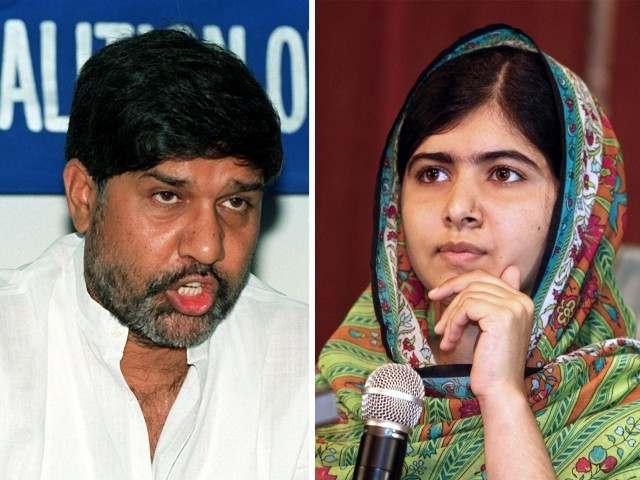Nobel brings little impetus for peace in India and Pakistan
Offices of Modi, Nawaz both declined this week to say whether they would accept Malala's overture

But, just hours later, a fresh exchange of fire between troops in the disputed Himalayan region of Kashmir provided a stark reminder that the prospect of lasting peace remains as distant as ever.
The offices of Indian Prime Minister Narendra Modi and his Pakistani counterpart Nawaz Sharif both declined this week to say whether they would accept Malala's overture.
It is a diplomatic hot potato, given the fractious relationship between the nuclear-armed neighbours.
Senior Pakistani analyst Hasan Askari said the joint Nobel award was a clear signal that the international community wanted to see India and Pakistan working together more to promote peace in the region, but that outside pressure would only go so far.
"The issue of improvement of relations between the two countries is a political issue and in the past sometimes the two countries have listened to the international community and sometimes ignored it," he told AFP.
"It really depends if the political leadership wants peace or conflict at this stage."
New Prime Minister Modi invited his Pakistani counterpart to his inauguration ceremony in May, a move widely hailed as an olive branch to India's traditional enemy.
But as he hit the campaign trail for state elections last week, the nationalist leader was in a bellicose mood.
"The enemy has realised that times have changed and their old habits will not be tolerated," said Modi, referring to Pakistan, in a speech delivered a day before the Nobel committee's announcement.
He said Indian troops would continue to "speak with their finger on the trigger", after some of the deadliest cross-border firing along their frontier in a decade, in which at least 20 civilians were killed.
For those living near the border, the Nobel Prize provided little comfort.
"We are happy that a Pakistani got this peace award, but I don't think it will help in reducing tension," said Sardar Mohammad Javed, whose family was affected by the Indian shelling across the border.
There was also little appetite for a Nobel-inspired rapprochement among the Indian public, judging by the reaction on social media to the committee's announcement, which highlighted the importance of an Indian and a Pakistani joining in a common struggle.
"Why does everything have a India-Pak or Hindu-Muslim paradigm?" tweeted Indian journalist Devirupa Mitra.
Akhilesh Mishra, a supporter of the ruling Bharatiya Janata Party on Twitter, said it was "patronising" to India and Pakistan.
KG Suresh, a senior fellow at the Vivekananda International Foundation think-tank in New Delhi, said the most the Nobel committee could hope to achieve was to boost morale among those campaigning for peace.
"The Nobel Peace Prize sharing is not going to help India and Pakistan move on from their recent border tensions," he told AFP.
"It is because the mutual acrimony and suspicion is so deep-rooted that a Nobel Peace Prize sharing won't be able to make much of a difference, except creating some atmospherics among the media and the civil society."
Kashmir is divided between India and Pakistan, but both lay claim to the scenic Himalayan region.
India called off peace talks last month after Pakistan consulted with Indian Kashmiri separatists, in a move some saw as a sign of a tougher stance under the new right-wing government in New Delhi.
"The Nobel Prize is not going to solve the long-standing inter-state dispute between India and Pakistan," said Sreeram Chaulia, professor at the Jindal School of International Affairs in New Delhi.
"It is a structural problem and can't be solved through symbolism," said Chaulia.



















COMMENTS
Comments are moderated and generally will be posted if they are on-topic and not abusive.
For more information, please see our Comments FAQ